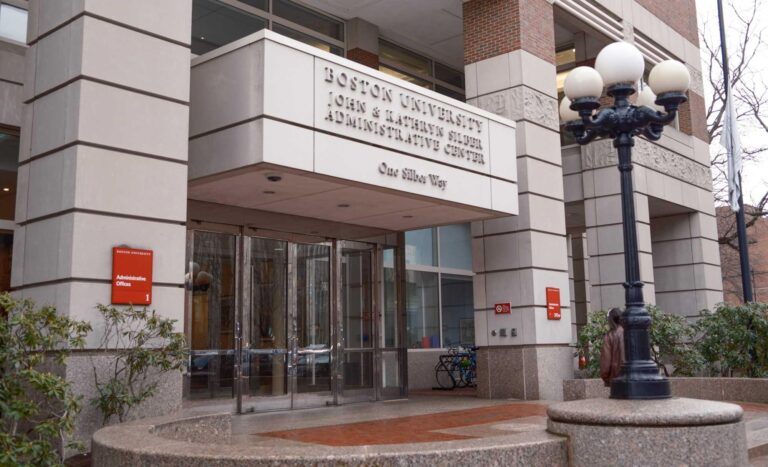A Boston University student has filed a lawsuit against Worcester Polytechnic Institute (WPI) and a fraternity following a severe burn injury sustained during a campus-related event. The legal action highlights concerns over safety protocols and institutional obligation at both universities, as the student seeks accountability and damages for the incident.
Table of Contents
- BU Student Initiates Legal Action Following Dormitory Burn Incident
- Investigation Reveals Alleged Safety Lapses at WPI and Fraternity House
- Impact of the Incident on Student Welfare and Campus Safety Protocols
- Experts Recommend Enhanced Fire Safety Measures and Accountability Standards
- Final Thoughts
BU Student Initiates Legal Action Following Dormitory Burn Incident
A Boston University student has filed a lawsuit against Worcester Polytechnic Institute (WPI) and a local fraternity following a dormitory fire that resulted in severe burns. The incident, which took place earlier this year, has raised significant concerns about campus safety protocols and the supervision of student organizations. The plaintiff alleges negligence on the part of both WPI governance and the fraternity members, citing inadequate fire prevention measures and lack of proper safety training as contributing factors to the tragedy.
The legal complaint outlines several key points highlighting the alleged failures:
- Deficient emergency response procedures within the dormitory facilities
- Failure of fraternity leadership to enforce safety regulations during social events
- Delayed notification and inadequate support from campus security staff
As investigations continue, both WPI and the fraternity have issued statements expressing condolences and a commitment to cooperate with authorities. The case has drawn attention to the broader issue of student safety and accountability in collegiate environments.
Investigation Reveals Alleged Safety Lapses at WPI and Fraternity House
An ongoing investigation has brought to light purported safety oversights at Worcester Polytechnic Institute (WPI) and a local fraternity house, linked to a severe burn incident involving a Boston University student. Sources close to the case suggest that inadequate safety protocols and insufficient supervision during an off-campus event may have contributed to the accident.Eyewitnesses report that essential safety equipment was either improperly maintained or absent when the incident occurred, raising questions about the fraternity’s compliance with university guidelines and local regulations.
Key concerns flagged include:
- Failure to enforce strict safety measures during student gatherings
- Inadequate emergency preparedness and response mechanisms
- Potential lapses in WPI’s oversight of affiliated student organizations
Critics argue that such issues reflect broader challenges in campus safety governance, prompting calls for immediate reforms to protect student welfare. Both WPI and the fraternity have yet to publicly address these allegations as the legal process advances.
Impact of the Incident on Student Welfare and Campus Safety Protocols
Student welfare on both campuses has come under heightened scrutiny following the incident, prompting immediate reassessments of existing safety protocols. Authorities and university officials face mounting pressure to implement more robust measures aimed at preventing similar occurrences. Mental health resources have been expanded to support students grappling with anxiety and trauma related to fraternity activities, as the event has sparked widespread concern about the role of campus organizations in student wellbeing.
In response, WPI and BU have announced a series of safety enhancements that include:
- Mandatory safety training sessions for all fraternity members
- Stricter oversight and enforcement of campus event guidelines
- Creation of an autonomous task force to review and revise risk management policies
- Increased transparency in reporting incidents related to student organizations
These changes aim not only to address immediate risks but also to foster a culture of accountability and vigilance, signaling a critical shift toward prioritizing student protection across campus environments.
Experts Recommend Enhanced Fire Safety Measures and Accountability Standards
In the wake of the severe burn incident involving a BU student, fire safety experts are calling for a rigorous overhaul of existing protocols at collegiate institutions. They emphasize the urgent need for enhanced fire prevention strategies that go beyond mere compliance, advocating for extensive training programs tailored to high-risk environments such as fraternity houses. Industry professionals stress the importance of:
- Mandatory installation and maintenance of advanced fire detection and suppression systems
- Regular, unannounced fire safety drills coupled with accountability reporting
- Stringent oversight on the use and storage of flammable materials during events
Furthermore, accountability standards must extend to both universities and student organizations, with experts recommending clear legislative frameworks that assign legal responsibility for negligence. This includes implementing transparent incident reporting mechanisms and fostering collaboration between campus safety officials, local fire departments, and student leaders to ensure continuous vigilance. Such measures are critical not only to prevent tragedies but also to hold parties liable and promote a culture of safety that prioritizes student wellbeing above tradition or convenience.
Final Thoughts
The lawsuit filed by the BU student marks a significant growth in the ongoing scrutiny of campus safety and fraternity oversight. As the case proceeds, both WPI and the implicated fraternity face heightened attention on their policies and responsibilities toward student well-being. The outcome may prompt broader discussions across universities about risk management and accountability in student organizations. Further updates will be provided as the legal process unfolds.

